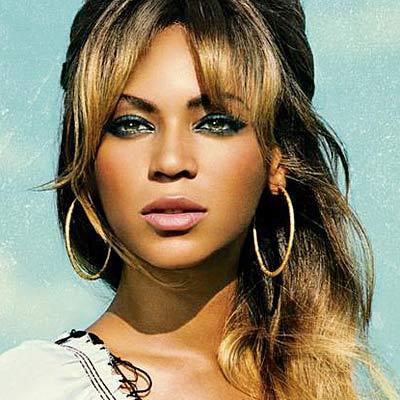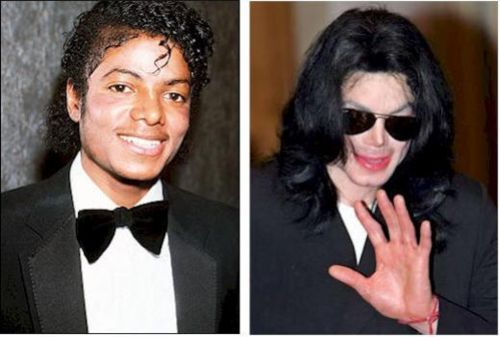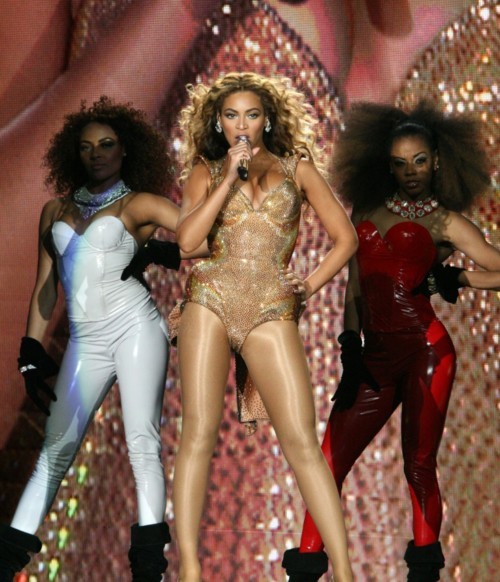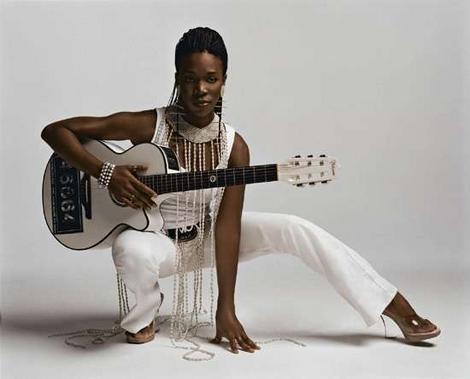
Beyoncé’s new blonde bombshell look prompted many to do a double take at the magazine pictures; less of the black powerhouse she ever was as she appeared looking more like a Marilyn Monroe wannabe, a faded version of her former self. Was it just the flash of the lens or had Beyonce, taken up the new craze among young black and Asian women, of bleaching her skin to reach cosmetic ‘perfection’? The pictures prompted debate within the industry: why would the number one r and b ‘diva’ want to look whiter and is this linked to success within the industry? It has always been a contentious issue; Michael Jackson infamously once sang ‘It doesn’t matter if you’re black or white’ after pretty much changing races.

The Daily Mail recently ran the same pictures that Heatran, that of the blonde bombshell in shades, then alongside the pictures that had caused such a furore, showed pictures of the shoot that captured her blacking up ‘as a tribute to African queens.’ Respected fashion magazine L’Officiel has defended the shoot as a ‘return to her African roots’, where her face was blackened with tribal war paint. Her management obviously felt this was necessary after all the negative press coverage generated over the pictures. Beyonce does seem a contradiction in terms in the way she presents herself. As a young, black American woman (her father is Black, her mother is Creole) she dressed in traditional African gear when she met Nelson Mandela and draped herself in the Jamaican flag for her concerts, as well as combining her familiar songs with reggae beats but then she also presents herself as Spanish, (Beautiful Liar) as Puerto Rican (Crazy in Love) and Parsi (Baby Boy) and her identity becomes blurred.

Beyonce is a household name. She is the top-selling artist of all time. Her image is crucial to her success. And if Gaga can turn herself into a meat sandwich then why can’t Beyonce turn into Barbie? Surely it’s tantamount to the same thing? No, not quite. In Beyonce’s case it seems that her record company knows that the Britney formula works. So why change it? Don’t rock the boat.
India Arie, the successful recording artist of the ‘90s, sees this as wrong, seeing hair as having too much cultural context in black culture. In ‘I am not my hair’ (feat Akon) she sings ‘I am not my hair, I am not this skin….I am the soul that lies within’ suggesting that perhaps this ‘crown’ has actually turned into a bit of a prison covering up one’s natural beauty. She is one of the few black artists who does not have a weave, who is ‘not the average girl from your video’
I ain’t built like a supermodel
But, I learned to love myself unconditionally
Because I am a queen

In Arie’s work there is an ever-present celebration of her identity. In ‘Brown skin’ she affirms the natural beauty of one’s skin colour, which is especially important in black culture. She is proud of who she is, of where she comes from. She wouldn’t want to lose that.
Arie’s underlying message is that image has become exaggerated, so much so that it has taken place of real qualities such as love, goodness and independence. We are so image conscious that we have forgotten who we are. And that goes for all of us. In trying to copy celebs we put too much emphasis on the transient nature of how we look, not who we are or what we do.
For the record I don’t believe Beyonce bleaches her skin but she does need to be careful in blurring the boundaries of race. It’s not as simple as playing dress up. When we look at Jackson’s attempt at trying to eradicate difference we all become the same: we meet somewhere in the middle, white people become darker, darker people become whiter and all identity is lost. (Shakira and Beyonce Beautiful Liar). But there lies the problem. Jackson is a different case. He wanted to be somebody else – Peter Pan – and this is less to do with race (though black fans may have seen it differently). Beyoncé however has a responsibility to fans to be proud of her colour and where she comes from. Images like the one above only send out negative messages.
In our media-consumed age it can be hard to differentiate between what is ‘en vogue’ and what it wrong. Dressing up in meat is just plain weird but changing your skin tone comes with centuries of baggage and even trying to appear whiter does not send out a positive message to fans of any race. When it comes to colour, Beyoncé should stick to her roots.
